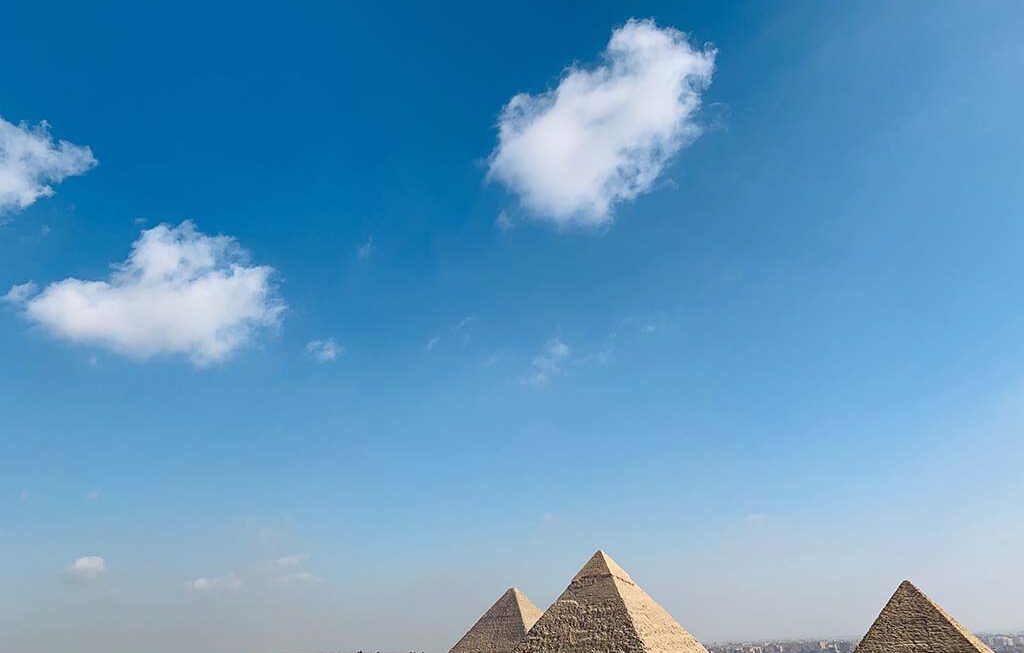The Ancient Egyptians are considered one of the oldest civilizations in the world, with a history that dates back to thousands of years ago. The land of Egypt was home to several powerful and influential dynasties, and they left behind a wealth of artifacts, monuments, artworks and knowledge that has been studied by archaeologists and scholars alike. In this article, we will explore 9 fascinating facts about Ancient Egypt to uncover some of their most remarkable contributions to the world.
1. The Pyramids
One of the most iconic structures associated with Ancient Egypt is its pyramids. These monumental structures were built as tombs for royal figures and pharaohs during the Old and Middle Kingdom periods, with some being dated as far back as 2560 BC. Although there is still much debate about how these incredible architectural feats were actually constructed, it’s widely accepted that they were made from limestone blocks weighing up to 70 tons each!
2. Mummification Practices
Mummification was an essential part of the Ancient Egyptian burial process for those in higher social classes such as nobles or royalty. This involved removing all internal organs from a body except for the heart which was thought to be necessary for judgement in the afterlife. The body was then dried and covered in oils and spices, before being wrapped in layers of linen bandages. It is believed that mummification was used as a form of preservation for the soul so that it could live on in the spirit world.
3. Creation Stories and Gods
The Ancient Egyptians had a complex pantheon of gods and goddesses, each with their own domains, duties and stories associated with them. They often used these stories to explain natural phenomena or to explain creation itself- for example, according to one story, the god Ptah created the world by speaking it into existence! This belief system also heavily featured in artworks such as hieroglyphics or temple reliefs which depicted various gods and goddesses as well as scenes from mythology.
4. Contributions to Mathematics, Science, and Medicine
The Ancient Egyptians are renowned for their advanced knowledge in mathematics, science, engineering and medicine which has greatly influenced modern day equivalents today! In mathematics alone they were responsible for developing concepts such as geometry, algebraic equations and decimal fractions which were all essential components of architecture during this period. They made great advances in medical knowledge too with some of Egypt’s most famous physicians even writing comprehensive volumes on topics such as anatomy and pharmacology.
5. Hieroglyphics
Hieroglyphics are a series of ancient symbols used by the Ancient Egyptians for writing. These characters were traditionally carved into stone monuments or papyrus scrolls, and often featured elaborate images or patterns to communicate specific ideas or messages. Although hieroglyphics were once considered to be indecipherable, we now know that they are in fact related to the modern-day alphabet and can be translated with the help of Rosetta stones- a stone tablet discovered in 1799!
6. Pharaohs
The rulers of Ancient Egypt were known as Pharaohs, and they held immense power over their subjects due to their divine status as gods on earth. Pharaohs could also appoint governors and advisers who would serve them as representatives in various cities throughout the kingdom, allowing them greater control over their people. This system was eventually overthrown by military leaders such as Ramses II who led successful invasions against neighbouring countries like Nubia and Syria during his reign.

7. Jewelry and Clothing Styles
The Ancient Egyptians had a distinct style of dress which varied depending on social class and occupation- with nobility and royalty often adorning their clothing with gold and jewels. Jewelry was an essential part of Ancient Egyptian life, as it was also used to signify wealth or status in society. This included items such as necklaces, rings, collars and amulets which were often made from precious materials like gold or silver.
8. Food and Agriculture Practices
Food played a major role in Ancient Egyptian culture, with popular dishes such as bread, beer and wine featuring heavily in their diet. Farming was also an important industry during this period due to its importance for sustaining the population- they were amongst the first civilizations to use irrigation techniques for growing crops such as wheat, barley, dates and vegetables!
9. Egyptian Artifacts & Architecture
Ancient Egypt is renowned for its many incredible monuments, temples and artifacts which remain today from this ancient civilization! These include temples like the Great Pyramids at Giza or the Valley of the Kings at Luxor; statues like those of Ramses II or Cleopatra; hieroglyphics found on temple walls; jewelry items crafted from precious metals; pottery figurines depicting gods; and much more!
Conclusion
In conclusion, Ancient Egypt is a fascinating period in history with its own unique culture, customs and contributions to the world. From its pyramids and mummification practices to hieroglyphics and gods, Ancient Egypt has left behind a wealth of artifacts and knowledge that has been studied by archaeologists and scholars alike. We hope you have enjoyed learning about 9 fascinating facts about this remarkable civilization!



